
Jeff Chapman on Ryfun on DAK – 2 minute audio

March 27, 2024 “Straight Talk: radio show with Scott Ryfun – In studio guest Glynn County tax commissioner, former GA state Rep, former GA state senator and 2010 GOP candidate for governor, Jeff Chapman. Audio – 2 minutes.


Request for correction and apology: Letter to the editor The Dalton Daily Citizen Re: HB 1105 & Rep Kasey Carpenter

Dear editor,
We write to request a correction, retraction, and apology for the obvious misinformation regarding HB 1105, ‘The Georgia Criminal Alien Track and Report Act’ contained in the Dalton Daily Citizen on March 25, 2024. The news report, “Whitfield County GOP censures state Rep. Carpenter” from reporter Charles Oliver informs readers that HB 1105 “…was introduced in response to the killing of nursing student Laken Riley in Athens.” That report is not true.
A quick check on the General Assembly website clearly illustrates the fact that HB 1105 was dropped on January 31 and had seen two separate committee hearings before an illegal alien allegedly murdered Laken Riley in Athens on February 22.
To assist Mr. Oliver and fact checkers in your news department on research for future news stories, I offer step by step instructions on how to access official records on Gold Dome legislation. Go to the official General Assembly website (https://www.legis.ga.gov), then type in the bill number in the box on the top of the page labeled “advanced search” and click the search icon. This will take you to the official page with complete information on the legislation – including dates of introduction into the committee process.

We are grateful for your accurate report that Rep. Kasey Carpenter was the only Republican to have voted against HB 1105 – a bill aimed at ending the many already-illegal and extremely dangerous sanctuary city/county policies that are spread across the GOP-ruled state.
We also note that even Senator Chuck Payne voted for the enforcement language in HB 1105.
D.A. King
Marietta
For the Board
Local governing body DOAA

Note: ‘Governing body’ defined.
Begin forwarded message:
From: Jackie Neubert <Neubertj@audits.ga.gov>
Subject: RE: I am assisting state Rep in search for compliance report OCGA 36-80-23, PLS direct me to page on your website with access to the reports?
Date: November 7, 2023 at 3:27:22 PM EST
To: “D.A. King” <Dking1952@comcast.net>
Cc: Carol Schwinne <Schwinne@audits.ga.gov>
Mr. King,
The Sheriff Offices for each of the counties referenced are part of the ‘local governing body’ as defined in OCGA 36-80-23. The Department of Audits and Accounts collects information from the ‘local governing body’ and not from individual components on the entity. Therefore, we would not have any data specifically regarding sheriffs’ offices. If you are interested in gathering policies of individual sheriffs’ offices, you would need to contact the specific governments directly and request such information.
I apologize that we are not able to assist you further with your request. I wish you luck in obtaining the information you are requesting.
Kind Regards,
Jackie
| ” src=”blob:https://newdustininmansociety.org/e1bb8bb2-bc01-4ecd-977a-1dd23c24130d” alt=”image001.png” class=”Apple-web-attachment Singleton” style=”width: 3.0833in; height: 0.85in; opacity: 1;”> | Jacqueline E. Neubert, CPA, CGFM
Deputy Director | Professional Standards & Practices Phone 404-651-8938| |
From: D.A. King <Dking1952@comcast.net>
Sent: Tuesday, November 7, 2023 2:33 PM
To: Jackie Neubert <Neubertj@audits.ga.gov>
Subject: Re: I am assisting state Rep in search for compliance report OCGA 36-80-23, PLS direct me to page on your website with access to the reports?
CAUTION: This email originated from outside of the organization. Do not click links or open attachments unless you recognize the sender and know the content is safe.
Ms. Neubert,
Thank you very much for your timely response.
Please regard this note as my official open records request for the compliance reports from the following sheriffs, for 2021 and 2022.
Gwinnett County Sheriff office, Cobb County Sheriff office, Fulton County Sheriff office, Glynn County Sheriff office and Chatham County Sheriff office.
Please contact me with any questions.
Thanks again.
D.A. King
On Nov 7, 2023, at 1:03 PM, Jackie Neubert <Neubertj@audits.ga.gov> wrote:
Good Afternoon Mr. King,
I apologize for the delay in responding to your request.
The compliance reports for the immigration compliance reports are not required to be posted on our website.
However, we provide confirmation of the reporting status and whether or not sanctuary polices were enacted when requested.
I have attached reports with the compliance status for OCGA 36-80-23 (Sanctuary Policy) for Cities (includes Consolidated Governments) and Counties.
The reports will include if they have not responded, reported that they enacted sanctuary policies, or if they are in compliance with OCGA 36-80-23.
Please let me know if you would like the report for any other entity type.
Please contact me if you have any questions.
Thanks,
Jackie
” src=”blob:https://newdustininmansociety.org/e1bb8bb2-bc01-4ecd-977a-1dd23c24130d” alt=”image001.png” border=”0″ class=”Apple-web-attachment Singleton” style=”width: 4.825in; height: 1.325in;”>
| Jacqueline E. Neubert, CPA, CGFM
Deputy Director | Professional Standards & Practices Phone 404-651-8938| |
From: D.A. King <Dking1952@comcast.net>
Sent: Tuesday, November 7, 2023 10:25 AM
To: Jackie Neubert <Neubertj@audits.ga.gov>
Subject: I am assisting state Rep in search for compliance report OCGA 36-80-23, PLS direct me to page on your website with access to the reports?
CAUTION: This email originated from outside of the organization. Do not click links or open attachments unless you recognize the sender and know the content is safe.
Ms. Neubert,
Will you please direct me to the page on the Audits & Accounts site that has public access to the compliance reports for OCGA 36-80-23 as required by OCGA 50-36-4?
I have spent considerable time on the phone to the Dept. but cannot locate anyone who can help me.
Thank you,
D.A. King
Marietta
404-316-6712
GALEO funder levels – 2024 Power Breakfast held at the Georgia Power Headquarters




- « Previous Page
- 1
- …
- 8
- 9
- 10
- 11
- 12
- …
- 120
- Next Page »



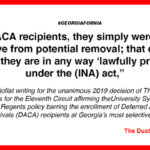















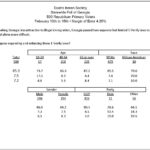





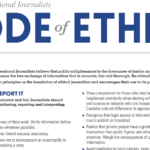
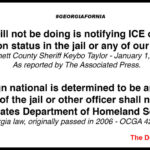




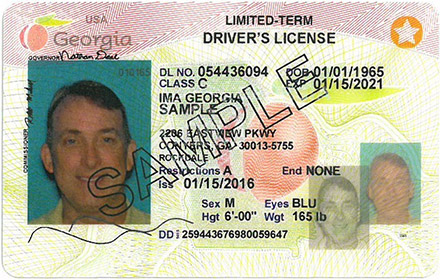




You must be logged in to post a comment.